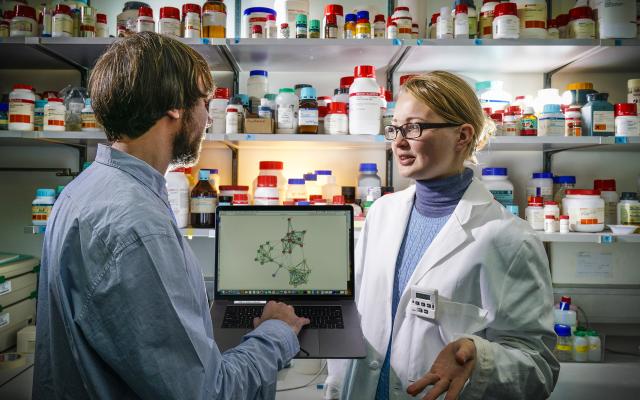Have you ever wondered how bioinformatics contributes to health and the environment? What is the SIB Swiss Institute of Bioinformatics – in simple words? Explore this webpage to find out concrete examples of how the life science infrastructure and data science expertise at the institute contribute to a better world and a stronger Switzerland. Discover SIB in five benefits for research, health, surveillance of epidemics, the environment and bringing Switzerland on the international scene.
An essential partner for life sciences and a benefit to society
introduction to SIB
Data science serving biology, health and the environment
Since its inception 25 years ago, SIB has become one of the leading biological and biomedical data science organisations in Europe, thanks to support from SERI*.
*State Secretariat for Education, Research and innovation
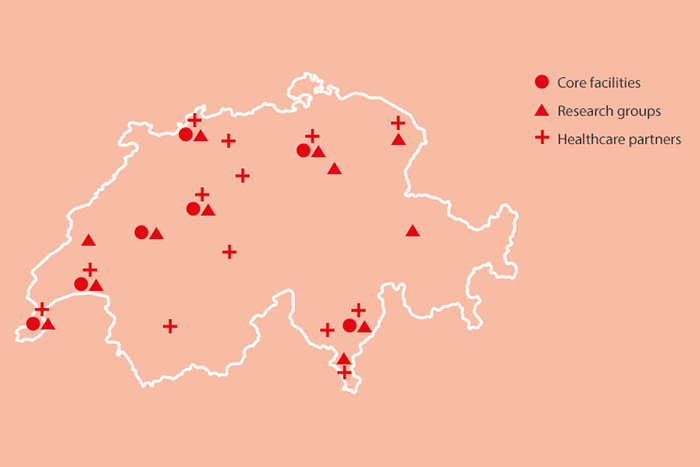
SIB is represented in the main academic institutions in Switzerland and leads numerous infrastructure projects at the national and international level.
These have a major impact on life science research, with direct benefits for society.
in figures*
28
institutional partners throughout Switzerland
88
groups
900
members including 190 employees
*as of 1 January 2023
decoding

Bridges, road networks and the internet all help a country to generate wealth and knowledge to benefit its population.
Similarly, the infrastructure developed by SIB’s bioinformaticians helps researchers to speed up their discoveries and clinicians to develop their diagnostic and treatment capacity.
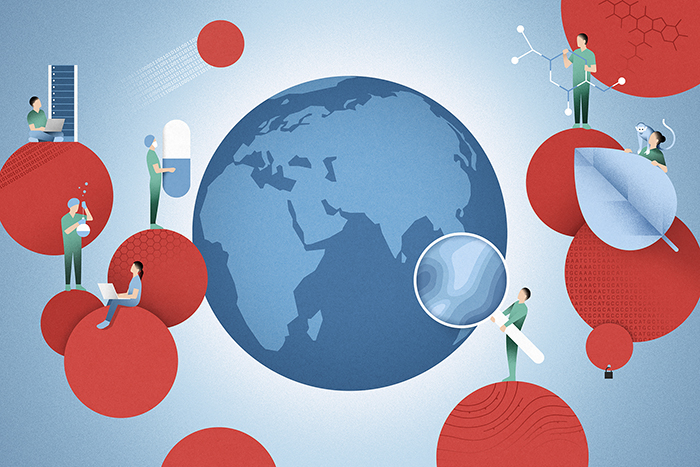
SIB on video
As part of its mission entrusted by SERI, SIB develops research infrastructure including:
secure data computing and sharing platforms on a national scale
cutting-edge open databases & software tools
clinical diagnosis applications
targeted areas of expertise and training to meet the needs of researchers and health professionals
Financial resources:
The institute’s annual budget for its activities of national interest is around CHF 30 million.
SERI’s contribution is around 40% (excluding funding for BioMedIT/SPHN) and allows SIB to raise a third of its income from competitive funds such as long term collaborations and services as well as grants.
Solutions for the benefit of society: some examples
benefit n° 1 – research
Accelerating life sciences research
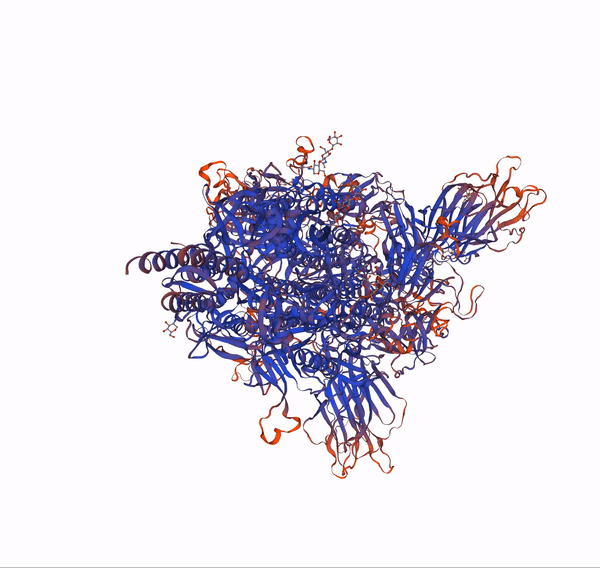
As part of its mission, SIB provides researchers with software and reference databases that enable them to speed up their discoveries, with positive consequences for health, nature, agriculture and more. Find more stories on this here.
The Swiss-Prot group, for example, develops and maintains knowledgebases such as UniProt and Rhea through “expert biocuration”. This highly specialized activity enables expert selection and annotation of the most reliable and comprehensive scientific data on a given biological topic, such as proteins. Open resources of this kind allow researchers to base their work on the best knowledge available.
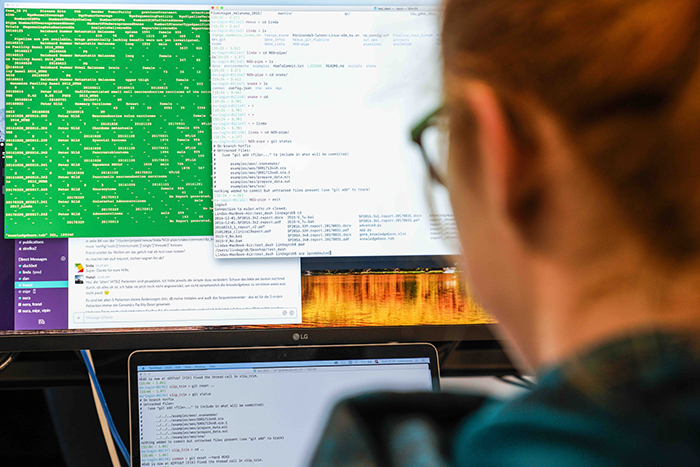
→
The resulting time savings and quality are critical for new discoveries

Practical example:
supporting the development of desirable agronomic traits in crops. More information
SIB databases are reliable learning sources
for machine learning algorithms
in biology and medicine.
→
Increased reliability of algorithms and the possibility of explaining models
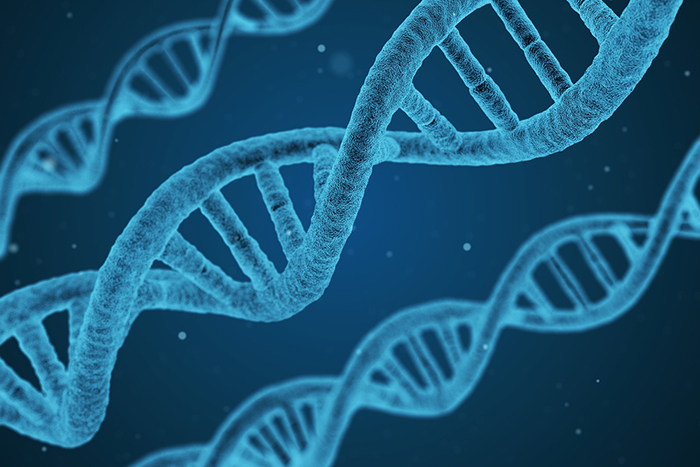
Practical example:
predicting genes-disease links or protein-drug interactions
SIB delivers over 60 courses a year in a wide range of bioinformatics fields to help biologists and clinicians hone their skills.

Examples of infrastructure developed by SIB for the global scientific community:
The first comprehensive, freely accessible computer-aided drug design environment on the web
36,500 users / month
232,900 requests / month
The most frequently used information source on proteins in the world
581,200 users / month
8.3 million page views / month
A a protein–protein interaction database
71,600 users / month
1.9 million page views / month
A platform that produces and provides 3D models of proteins
40,100 users / month
104,700 models produced / month
An expertly curated database of cell lines
39,900 users / month
235,600 page views / month
benefit n° 2– health
Supporting the development of personalized health
In 2017, the Swiss Confederation launched the Swiss Personalized Health Network (SPHN) to speed up research in personalized health*. SIB is at the heart of this initiative.
*Personalized health relies on the increased use of ever more precise data (clinical, genetic, etc.) to characterize each individual in order to optimize the diagnosis, prevention and treatment of diseases.
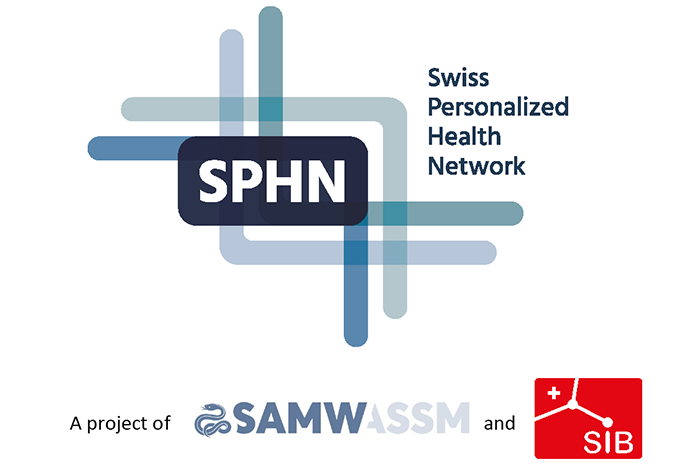
As the SPHN Data Coordination Centre (DCC), SIB is responsible for the initiative’s technical implementation and for coordinating the various actors involved, such as hospitals that gather patient data, researchers who test the development of the infrastructure and the various groups of experts.
→
Allow citizens to benefit from the latest advances in personalized medicine driven by research projects, for example on the factors involved in the appearance or treatment of certain conditions, such as chronic diseases or cancer.
SIB coordinates the harmonization and provision of health data from Swiss hospitals for research purposes, through the secure national compute network BioMedIT.

→
Authorized researchers are granted secure access to a critical mass of data with patient consent to carry out their studies.
focus
Boosting precision oncology
SIB responds to the specific needs of clinicians in university hospitals by developing long-term infrastructure, particularly in the field of precision oncology. Some examples:
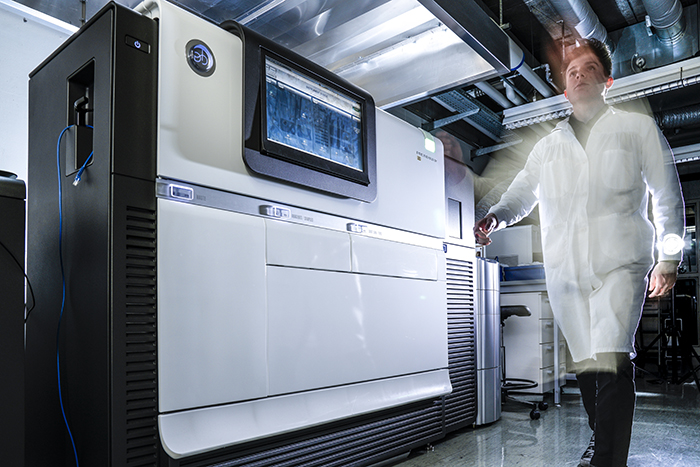
Development and optimization of a tool
with the Geneva University Hospitals (HUG), which has been used since 2016 to manage
and analyze sequencing data from tumours
in routine cancer diagnosis (currently in v.5).
→
More efficient, more precise diagnosis.
A national platform that allows Swiss clinicians to share a joint clinical interpretation of the genetic variants identified in their patients’ tumours.
→
Harmonized interpretation, reviewed by clinicians, of the variants found in cancer patients to support clinical research and ultimately patient care.
Training for clinicians and researchers through a Certificate of Advanced Studies (CAS) in personalized molecular oncology in conjunction with Basel and Lausanne University Hospitals and the University of Basel.
→
Harmonized interpretation, reviewed by clinicians, of the variants found in cancer patients to support clinical research and ultimately patient care.
Software used by the Molecular Tumour Board for French-speaking Switzerland (CHUV & HUG) to support the work of oncologists.
→
Find out which genetic mutations are likely to have an impact on tumour development and contribute to identifying the most effective treatment.
Powering the analysis of imagery of tumor samples with machine learning, in collaboration with Lunaphore as well as the Geneva University Hospitals.
→
Support the characterization of tumour microenvironments in order to adapt treatments to patient profiles.
benefit n° 3 – surveillance of epidemics
Equipping Switzerland to deal with epidemics
Among the open databases and software developed by SIB, V-Pipe is used to detect novel SARS-CoV-2 variants in wastewater, while Nextstrain enables real-time tracking of virus evolution.
→
Enabling the early detection and tracking of viruses and informing public health authorities.
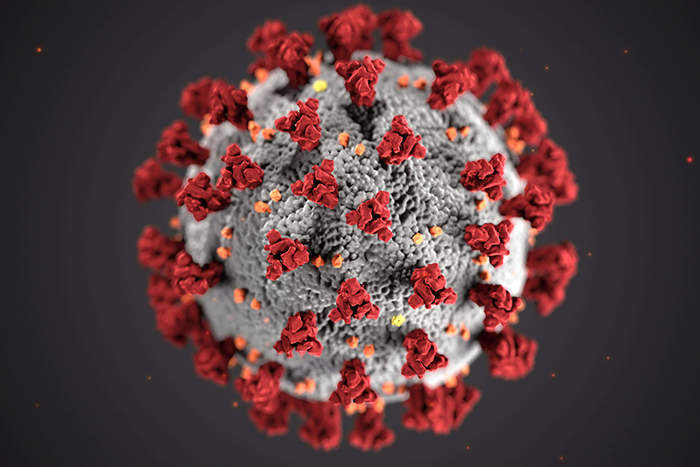
SIB has also developed a national platform to centralize sequencing data from pathogenic viruses and bacteria, the Swiss Pathogen Surveillance Platform (SPSP), to equip Switzerland with an essential surveillance tool in the fight against infectious diseases.
The platform was adapted to the COVID-19 pandemic in record time and is used as the Swiss SARS-CoV-2 Data hub by the Federal Office of Public Health FOPH.
→
A significant time saving for the FOPH, which receives customized and standard reports three times a week, with representative data for the whole of Switzerland.
The platform also provides open access to the virus’s genetic sequences to the international research community.

→
Over 100,000 sequences have been shared since the start of the pandemic, placing Switzerland in the top five contributing countries, to accelerate research into the virus.
Thanks to this national infrastructure, Switzerland has a tool to monitor the emergence of viruses and multi-resistant bacteria.
benefit n° 4 – environment
Studying genomes to benefit the environment and agriculture
Large-scale genetic sequencing initiatives are transforming our understanding of biodiversity. These provide fundamental knowledge about how biological systems work and how species react to environmental changes. The applications are numerous, in both agricultural and environmental protection terms.
SIB Groups participate in international initiatives aimed at supporting species preservation by increasing understanding of their genetic characteristics.

Biodiversity Genomics Europe (BGE) is a pan-European project that combines the efforts of two key intiatives on DNA barcoding (iBOL Europe) and genomics (European Reference Genome Atlas ERGA, to which several SIB Groups contribute) towards improved sampling and analysis of biodiversity across Europe. The Environmental Bioinformatics group is responsible for consolidating efforts between the two activities. Find out more
Artificial intelligence solutions to prioritize areas for conservation efforts: using the software package CAPTAIN, developed by an SIB Group, factors such as biodiversity data, the budget allocated to conservation and information on human pressure and climate change can be integrated to reveal extinction risks and threats. This can the be used to guide actions to meet the goals set at the UN Biodiversity Conference (COP15).

→
These methods have been used to predict the risk of extinction across plant species in Madagascar resulting in a call for their urgent protection. Find out more
benefit n° 5– international
Strengthening Switzerland’s attractiveness and encouraging innovation
 SIB represents Switzerland in numerous cutting-edge international research initiatives, in spite of the more fragile context with European agreements.
SIB represents Switzerland in numerous cutting-edge international research initiatives, in spite of the more fragile context with European agreements.
SIB is an established partner for public-private European projects (such as the Innovative Medicines Initiatives) in managing and analysing sensitive data from dozens of countries.
→
Find practical solutions to prevent and treat diabetes, cancer or obesity by analysing cohorts from different countries.
SIB is co-leading a European project aimed at free, harmonized sharing of SARS-CoV-2 genetic sequencing data from all over the world.
→
Increase the volume of data available for global research based on the Swiss SARS-CoV-2 data hub model.
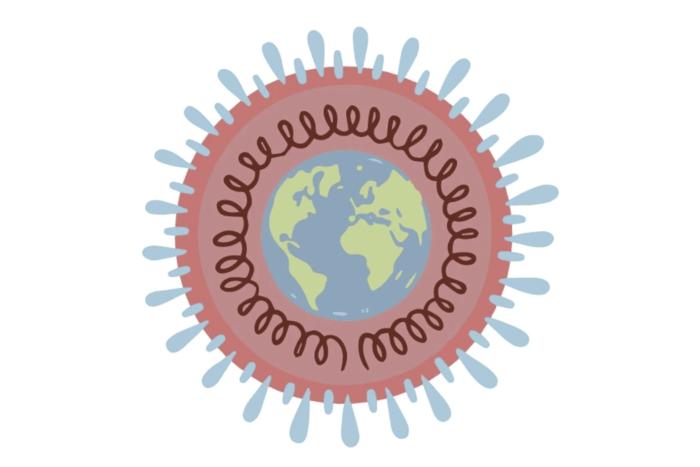
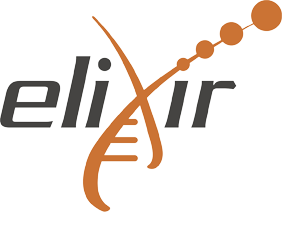
SIB develops open science databases and tools relied upon by researchers all over the world. Among the 17 SIB Resources used by over 10 million users each year, 5 have been awarded the European “ELIXIR Core Data Resource” quality label (Cellosaurus, Rhea, STRING, SWISS-MODEL and UniProt) and 5 are recognized worldwide as Global Core Biodata Resources (Bgee, Cellosaurus, Rhea, STRING, and UniProt).
→
Speed up research through open research data (ORD) solutions and contribute to the international reputation of Swiss expertise.
SIB is a strategic partner in terms of thinking about the viability of critical life sciences research infrastructure. The institute participated in the creation of the Global Biodata Coalition and continues to be involved in it; it is also a member of the Global Alliance For Genomics & Health (GA4GH), which works towards responsible genomic data sharing.
→
Act as a spokesperson for Switzerland in identifying solutions to the major issues affecting research infrastructure and biological and biomedical data science.



